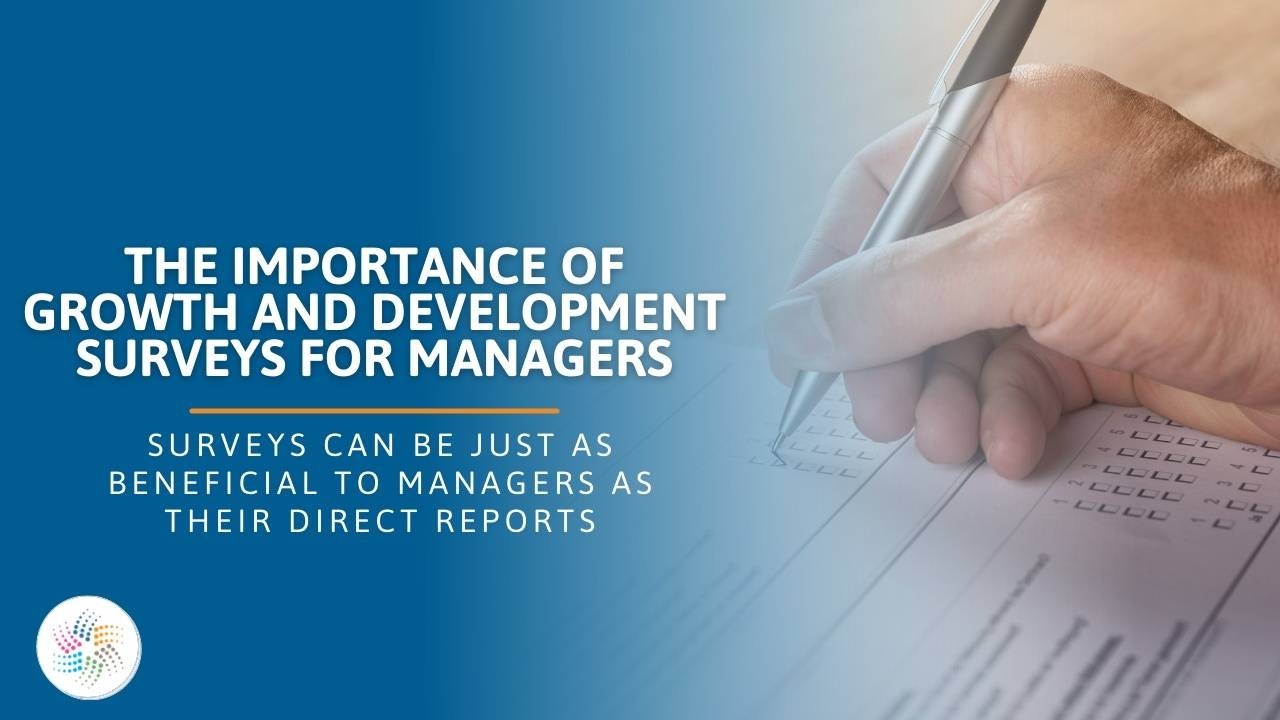The Importance of Growth and Development Surveys for Managers
Mar 02, 2021
When many people think of growth and development surveys, they think of learning opportunities for their employees. These are tools to help your direct reports identify their strengths, flesh out their weaknesses, and take action to improve. All of the above is true; however, managers may also find these same surveys could help them become more effective leaders.
There’s a popular belief that people leave managers, not jobs. In translation, this means that even when an employee enjoys the work they do, they’re not likely to stay if they feel like their leadership is ineffective, stifling, or damaging.
In the modern workplace, growth and development surveys are a two-way street. Employees have an opportunity to rate their managers in a judgment-free environment. Together, everyone wins because everyone has equal opportunities to grow. We’ve taken the opportunity of this month's theme: Career Growth, to dig deeper into the idea of feedback for managers, in hopes that this practice will provide an opportunity for growth in your leadership.
Rating Manager Effectiveness
In a growth mindset culture, feedback doesn’t wait for formal surveys. Managers and employees alike feel free and encouraged to share their thoughts about what’s going well and what can be improved.
However, many employees prefer the structure of growth and development surveys because they don’t have to worry about catching their manager at the “right time”. They might not feel as nervous putting their thoughts on paper as they would speaking face to face. Plus, having a survey helps them to direct their focus rather than think of feedback on the spur of the moment.
What Should Be Included in Growth and Development Surveys for Managers?
Surveys typically include qualitative and quantitative questions, such as the following:
- Does your manager listen to your thoughts, concerns, and opinions?
- Do they act on your concerns or suggestions?
- How well does your manager communicate their expectations or important information?
- Does your manager continually provide you with feedback on your performance, with or without you having to ask for it?
- Does your manager demonstrate empathy and accommodate your needs when necessary (e.g. changing deadlines when your workload is increased, etc.)?
- Does your manager exhibit knowledge of the company, its mission, and its goals?
- What do you think your manager could improve on?
- What would you recommend your manager continue doing?
This is by no means a comprehensive list, but it should help you start thinking in the right direction. Managers play an important role in the overall success of the company and, just like regular employees, they need to identify strengths and opportunities to stay on track.
Working Toward the Same Goals
Something to remember is that while managers are leaders of others, they are also employees of the same company. Together, managers and their direct reports are working toward the same goals and objectives. This is more easily and more effectively achieved when managers receive feedback on how they can become a better leader. The effort they put into self-improvement can be quite contagious.
How does your leadership stack up? Managers, take the self-care quiz and access our free leadership course.

